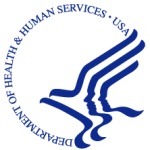- Industry: Government
- Number of terms: 33950
- Number of blossaries: 0
- Company Profile:
United States Department of Health and Human Services, Radiation Emergency Medical Management
Treatment with anticancer drugs directed to a specific area of the body.
Industry:Health care
The framework that supports the soft tissues of vertebrate animals and protects many of their internal organs. The skeletons of vertebrates are made of bone and/or cartilage.
Industry:Health care
A substance that has been tested in a laboratory and has gotten approval from the U.S. Food and Drug Administration (FDA) to be tested in people. An experimental drug may be approved by the FDA for use in one disease or condition but be considered investigational in other diseases or conditions. Also called investigational agent and investigational drug.
Industry:Health care
A tentative proposal made to explain certain observations or facts that requires further investigation to be verified.
Industry:Health care
State of being separated from others. Isolation is sometimes used to prevent disease from spreading.
Industry:Health care
An improvement that can be measured by the health care provider (for example, when a tumor shrinks or there are fewer cancer cells in the blood).
Industry:Health care
Surgery to remove an affected area of the vulva (the external female genital organs, including the clitoris, vaginal lips, and the opening to the vagina) along with a small amount of surrounding normal tissue.
Industry:Health care
Cancer that forms in the tissues of the skin. There are several types of skin cancer. Skin cancer that forms in melanocytes (skin cells that make pigment) is called melanoma. Skin cancer that forms in the lower part of the epidermis (the outer layer of the skin) is called basal cell carcinoma. Skin cancer that forms in squamous cells (flat cells that form the surface of the skin) is called squamous cell carcinoma. Skin cancer that forms in neuroendocrine cells (cells that release hormones in response to signals from the nervous system) is called neuroendocrine carcinoma of the skin. Most skin cancers form in older people on parts of the body exposed to the sun or in people who have weakened immune systems.
Industry:Health care
The tissue of the upper and lower jaws that surrounds the base of the teeth. Also called gums.
Industry:Health care
Too little thyroid hormone. Symptoms include weight gain, constipation, dry skin, and sensitivity to the cold. Also called underactive thyroid.
Industry:Health care
